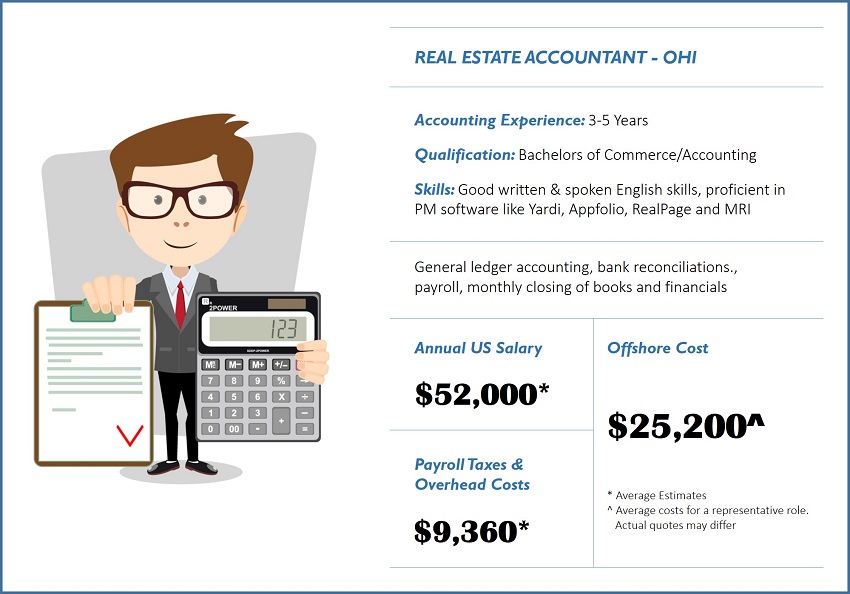Discover How Construction & Real Estate and Why It’s a Lucrative Industry
Discover How Construction & Real Estate and Why It’s a Lucrative Industry
Blog Article
The Key Advantages of Implementing Building Accountancy Practices in Building And Construction & Property Firms
The implementation of building accounting methods within building and actual estate firms presents numerous benefits that can dramatically improve overall monetary administration and project end results. By developing rigorous budgeting and cost-tracking devices, firms can achieve better accuracy in economic preparation and cash flow administration.
Improved Budget Control
In the realm of building and construction accountancy, reliable budget plan control is critical for project success. Improved budget control entails rigorous surveillance and monitoring of monetary sources throughout the job lifecycle. Exact budgeting makes certain that expenses are approximated reasonably, making it possible for firms to allocate funds effectively and reduce the danger of overruns.
To achieve improved budget control, building firms must employ in-depth cost tracking approaches, utilizing innovative software application solutions that assist in real-time information analysis. This includes breaking down project expenses right into labor, products, and overhead, permitting for accurate projecting and changes as needed. Routine budget plan evaluations and variance analysis are essential in determining disparities in between forecasted and real expenses, which can educate timely decision-making.
Furthermore, clear communication amongst project stakeholders is vital for keeping budgetary discipline. Establishing a culture of liability ensures that all employee know monetary restrictions and purposes. By fostering collaboration across departments, firms can enhance their capability to react to monetary difficulties proactively.

Improved Cash Flow Administration

Reliable cash money circulation management is vital for building firms, as it directly impacts their ability to run efficiently and fulfill job responsibilities. By utilizing robust construction audit techniques, companies can get a more clear photo of their financial placement, enabling far better forecasting and source allocation.
Among the primary advantages of better capital management is the capacity to prepare for durations of economic stress. Construction projects often entail substantial ahead of time expenses and fluctuating revenue based upon project landmarks. With reliable monitoring of earnings and costs, firms can recognize prospective cash money scarcities and carry out techniques to mitigate them, such as safeguarding credit lines or adjusting payment timetables with subcontractors.
By enhancing these procedures, building firms can make sure that funds are readily available when required, sustaining recurring procedures and lowering the risk of delays due to pay constraints. Precise cash money flow projections enable firms to make informed decisions concerning investments in new projects, equipment, or personnel, fostering sustainable development and security within the company.
Boosted Job Earnings
Maximizing task success is a basic objective for building firms aiming to enhance their monetary performance. By precisely tracking job costs, companies can determine areas of overspending and apply restorative actions quickly.
In addition, in-depth economic reporting and evaluation provide insights right into profit margins for different tasks. By assessing these margins, companies can make informed decisions on future quotes, guaranteeing they pursue jobs that straighten with their profitability objectives. Additionally, building and construction accounting methods assist in far better communication amongst project stakeholders, promoting collaboration that can result in cost-saving technologies and improved job implementation.
Furthermore, establishing a robust accountancy structure enables firms to properly assess their efficiency versus sector benchmarks. This not only helps in identifying staminas however also highlights weaknesses that require attending to, allowing continual renovation. Inevitably, increased project profitability not only enhances a firm's monetary standing however likewise enhances its affordable benefit in the building and construction and actual estate market, leading the means for lasting growth and success.
Streamlined Financial Processes
Structured financial procedures are essential for construction companies intending to improve functional effectiveness and accuracy in their bookkeeping practices. By implementing standard treatments and making use of specialized software, companies can significantly reduce the time and initiative invested on monetary management jobs. Automation of routine jobs, such as pay-roll, cost, and invoicing monitoring, lessens human error and ensures that financial information is processed without delay.
Additionally, streamlined procedures promote much navigate to this site better money flow monitoring, a critical element for building firms where job timelines and budgets can be uncertain. With real-time monetary coverage, companies can monitor their monetary health, permitting for swift changes to reduce any kind of capital problems. This aggressive method aids maintain vendor connections and keeps projects on timetable.
Integrating construction accountancy techniques enables firms to consolidate different monetary features, from budgeting to project costing, into cohesive process. This combination not just conserves time however also promotes transparency and responsibility amongst group participants. Inevitably, streamlined monetary processes add to a much more active company, all set to react to market adjustments and task demands while making sure that economic stability stays undamaged.

Informed Decision-Making Insights
Educated decision-making is critical for construction firms navigating intricate job landscapes and changing market conditions. By executing click this durable building audit techniques, firms can take advantage of exact economic information to facilitate strategic choices. This data-driven technique makes it possible for supervisors to analyze task viability, allocate sources successfully, and predict money flow fluctuations with greater precision.
Construction accounting provides understandings right into expense administration, enabling firms to identify areas of overspending and apply rehabilitative actions without delay. As an example, thorough budget plan tracking and variance evaluation can reveal inconsistencies in between projected and real expenses, informing future job proposals and strategies. Additionally, prompt financial coverage enhances the capacity to react to market modifications, ensuring that companies remain agile and competitive
Furthermore, precise financial insights foster better communication with stakeholders, consisting of investors and customers. Clear monetary coverage develops depend on and confidence, as stakeholders can see the company's financial health and wellness and project performance at a look. Eventually, informed decision-making, backed by audio bookkeeping techniques, equips building and construction firms to navigate difficulties, maximize opportunities, and drive sustainable development in an increasingly competitive market.
Verdict
To conclude, the application of construction audit practices in building and property companies substantially boosts financial management. By assisting in enhanced budget control, enhancing cash money circulation monitoring, and increasing job productivity, these practices add to streamlined financial processes and notified decision-making. The fostering of such techniques not just fosters accountability among stakeholders however likewise furnishes companies with the dexterity needed to browse rising and Real Estate Accountants fall market problems, inevitably bring about better overall success in job execution.
The application of building accountancy methods within building and real estate firms provides various advantages that can significantly boost total monetary administration and job results. Building jobs typically involve significant ahead of time expenses and rising and fall earnings based on project milestones. Additionally, construction bookkeeping practices help with much better communication amongst job stakeholders, promoting collaboration that can lead to cost-saving innovations and enhanced project implementation.
Incorporating construction audit methods enables companies to settle various economic functions, from budgeting to task costing, into natural workflows. Construction & Real Estate. Detailed budget plan tracking and variation evaluation can expose discrepancies between predicted and actual prices, informing future task bids and methods
Report this page